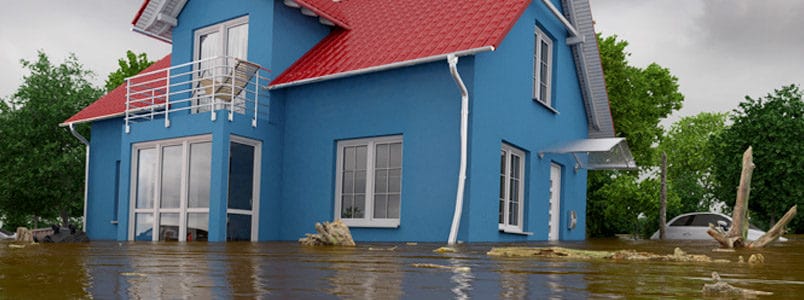Hurricanes, earthquakes, mudslides, tornadoes, floods, forest fires, and other natural disasters wreak havoc on a large scale. Homes and possessions might be damaged or lost. It’s a tragedy when people are injured or killed.
At such times, generous donors emerge to pledge or give money to charities that aid suffering victims of the disaster. As a bonus, donations to qualifying charitable agencies are tax deductible.

However, just as quickly as those contributors spring up to help, scammers also emerge. These fraudsters create bogus organizations that appear to be legitimate sources to aid people affected by natural disasters. But in reality, they are charitable scams. For example, it’s not difficult for fraudsters to create crowdfunding campaigns or fundraising websites that look genuine.
How can you tell the difference between legitimate disaster relief organizations and charitable scams? Here are a few tips.
Consult rating agencies and the IRS
Several websites and tools exist to help you recognize and prevent falling victim to charitable scams. Rating agencies such as BBB Wise Giving Alliance, Charity Navigator, and CharityWatch evaluate groups based on a large number of factors including effectiveness, financial health, transparency, accountability, and complaints. The Better Business Bureau can also be a source of information about nonprofit organizations.
If you want to dig deeper into a non-profit’s finances, you can examine its annual report and Form 990, Return of Organization Exempt from Income Tax. The Internal Revenue Service (IRS) requires non-profit organizations to complete Form 990 for tax purposes. You might be able to obtain copies from the organization directly. GuideStar is another credible source of information on non-profits.
The IRS also provides an online tool called the Tax Exempt Organization Search (TEOS) to streamline the research process. It may not include some religious organizations, however.
Avoid unknown organizations
Consider donating to well-known and time-tested organizations such as the American Red Cross, United Way, and The Salvation Army. Established disaster relief agencies are more trustworthy and likely more efficient than new or unknown charities.
New organizations aren’t always operated by scammers. But they might be inexperienced at dealing with major disaster relief efforts, and you want to ensure your money gets to the right place in a timely manner.
Steer clear of unknown individuals
It’s natural to want to help people adversely affected by natural disasters. And if you know the individual, you might have better insight into how they use the funds. However, donations you make directly to an individual are not tax deductible.
Conversely, if you give to someone you don’t know, you run the risk of falling victim to charitable scams. That person might toy with your emotions by telling a good story that makes them appear adversely affected by the disaster. But, in reality, the whole story is only a fabrication. In those cases, your money is gone forever, and you probably have no recourse.
In addition, beware of people who claim they are associated with charities, particularly if they solicit your donations via email or social networking sites. Pressure tactics can suggest they are fraudsters trying to take your cash.
Watch out for name confusion
A common ploy many fraudsters use is setting up charitable scams with names that sound legitimate or is similar to existing reputable charities. CharityWatch warns about “name rip-off charitable scams.” For example, the Cancer Research Institute is very similar in name to the American Institute for Cancer Research. The Cancer Research Institute is rated favorably while the American Institute for Cancer Research was determined to use donated funds far less efficiently.
Some scammers might not even aid disaster victims at all. They simply create an organization, name it after a particular disaster, and generous donors are unaware their money is not helping anyone other than the crooks who created the website or company.
Report charitable scams to the Federal Government
Because charitable scams related to natural disasters occur regularly, the U.S. Department of Justice created the National Center for Disaster Fraud to investigate, prosecute, and deter fraud. If you believe you were scammed — or suspect an organization is falsely collecting donations – you can call (866) 720-5721 to report it. The department is open 24 hours a day, seven days a week. You can also email disaster@leo.gov(link sends e-mail) or fax your information to (225) 334-4707.
More information and tips
Many generous people, like you, want to help others after natural disasters. But you must make sure your money helps those who truly need it. For more information, see the Department of Justice’s Tips on Avoiding Fraudulent Charitable Contribution Schemes.